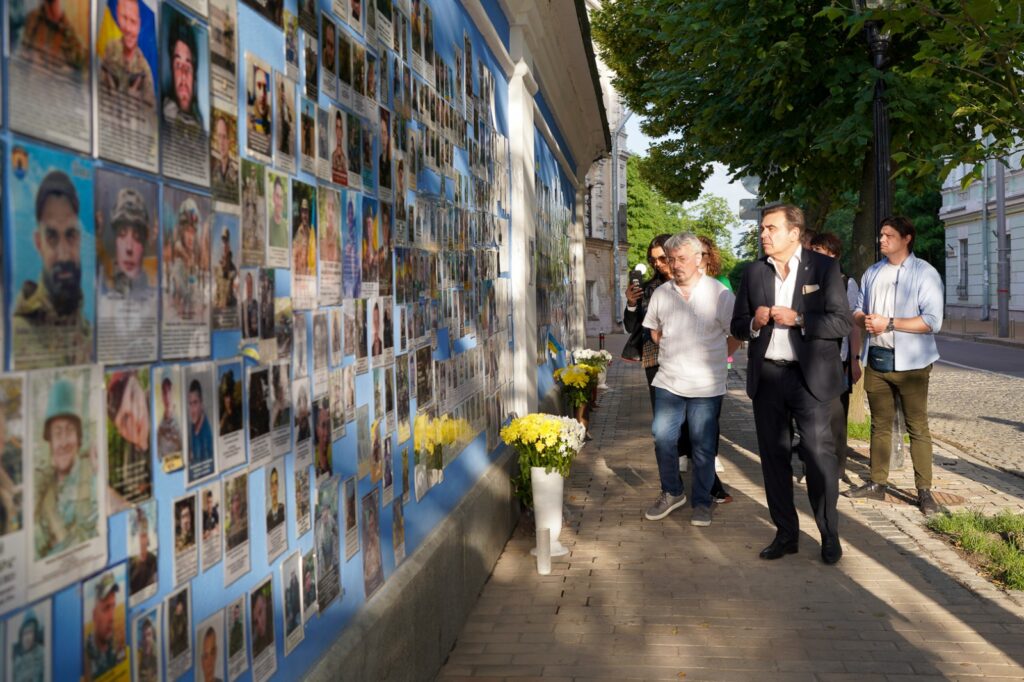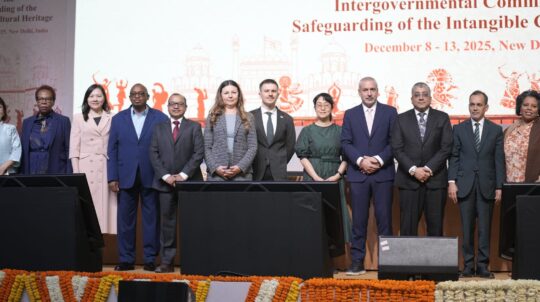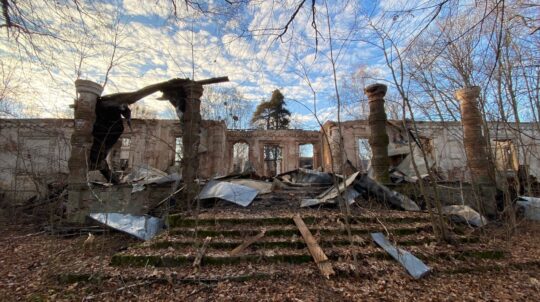Oleksandr Tkachenko, the Minister of Culture and Information Policy of Ukraine, met with Margaritis Schinas, the Vice President of the European Commission for Promoting the European Way of Life, who is visiting Kyiv. During the meeting, current issues of cooperation between Ukraine and the European Commission in the field of culture and preservation of cultural heritage were discussed.
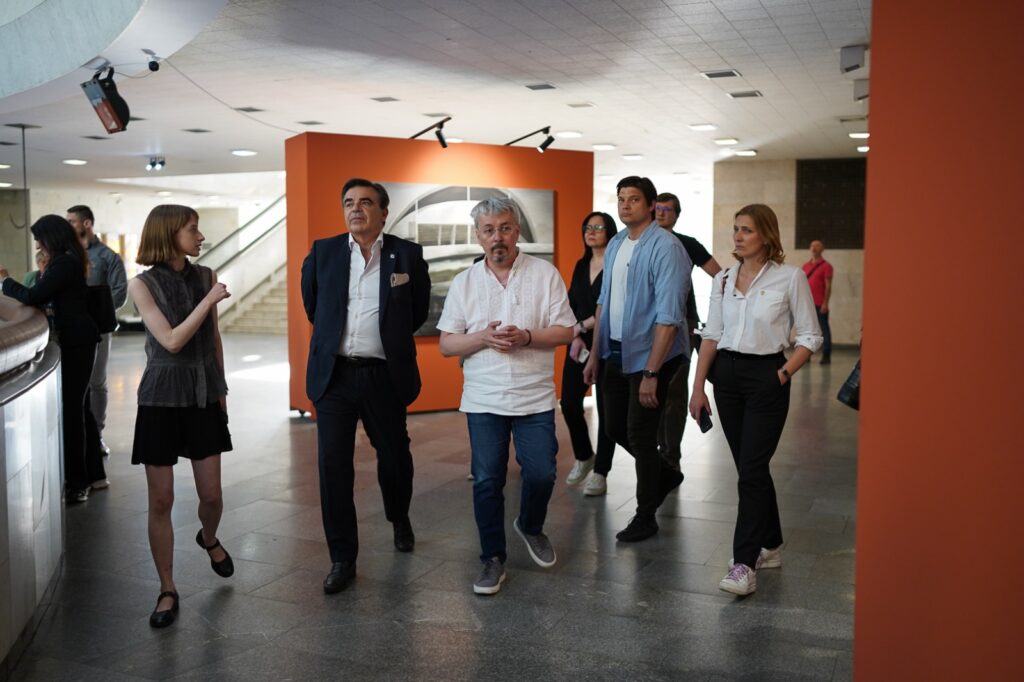
Oleksandr Tkachenko and Margaritis Schinas visited the exhibition “How are you?” at the Ukrainian House, which showcases over 500 works by more than 100 Ukrainian artists, including photography, painting, graphics, sculpture, installation, and performance. Representatives from the NGO Museum of Contemporary Art, who co-organized the project, provided a tour of the exhibition’s five floors. The Vice-President of the European Commission expressed admiration for the artworks, which narrate the chronology of a story that has permanently transformed the Ukrainian people. He also underscored the importance of further supporting the development of Ukrainian culture and promoting its achievements in Europe and worldwide.
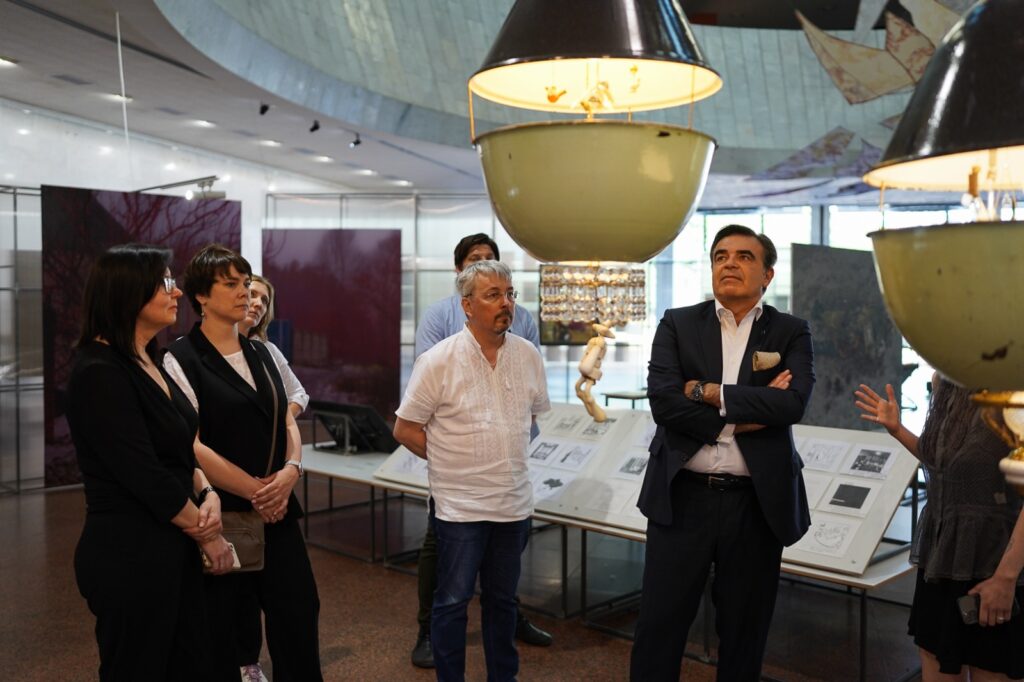
“Preservation of cultural heritage as a marker of Ukrainian identity remains one of the most important tasks. This applies to both tangible and intangible heritage. Cultural heritage is a strategic resource for the further development of a sustainable society, economy, and culture,” said Oleksandr Tkachenko.
In addition, the Minister informed the Vice-President of the European Commission about the losses in the cultural sphere because of russia’s full-scale aggression against Ukraine. The cultural infrastructure has experienced significant destruction and damage. As of May 25, 2023, 1,520 objects have been damaged, with one-third (541 objects) completely destroyed and cannot be restored. From February 24, 2022 to May 15, 2023, 623 immovable cultural heritage objects have been damaged or destroyed.
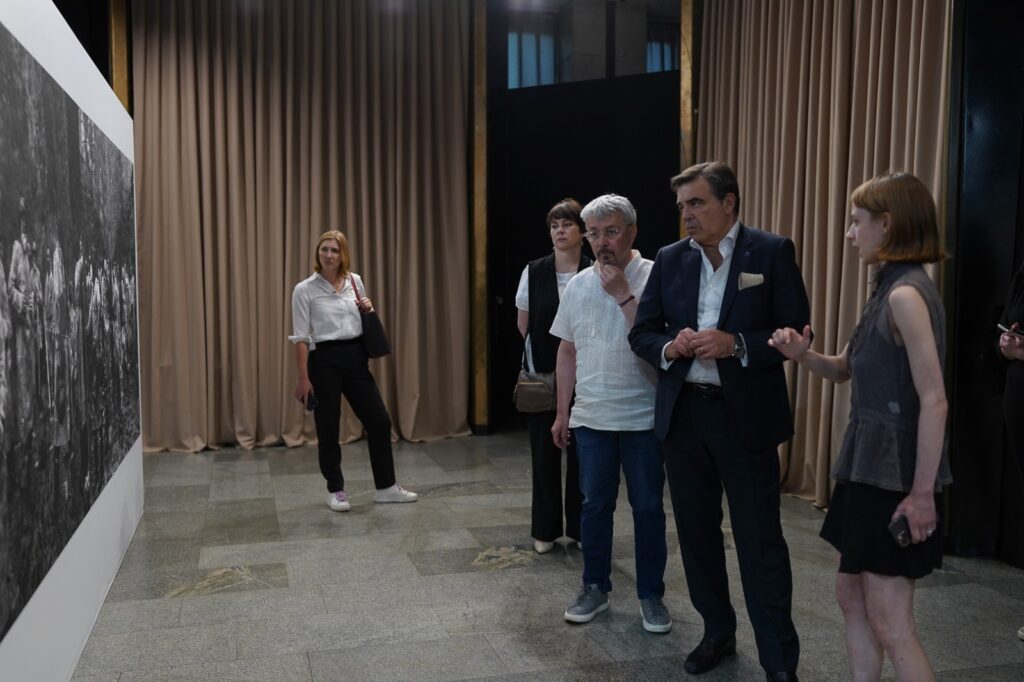
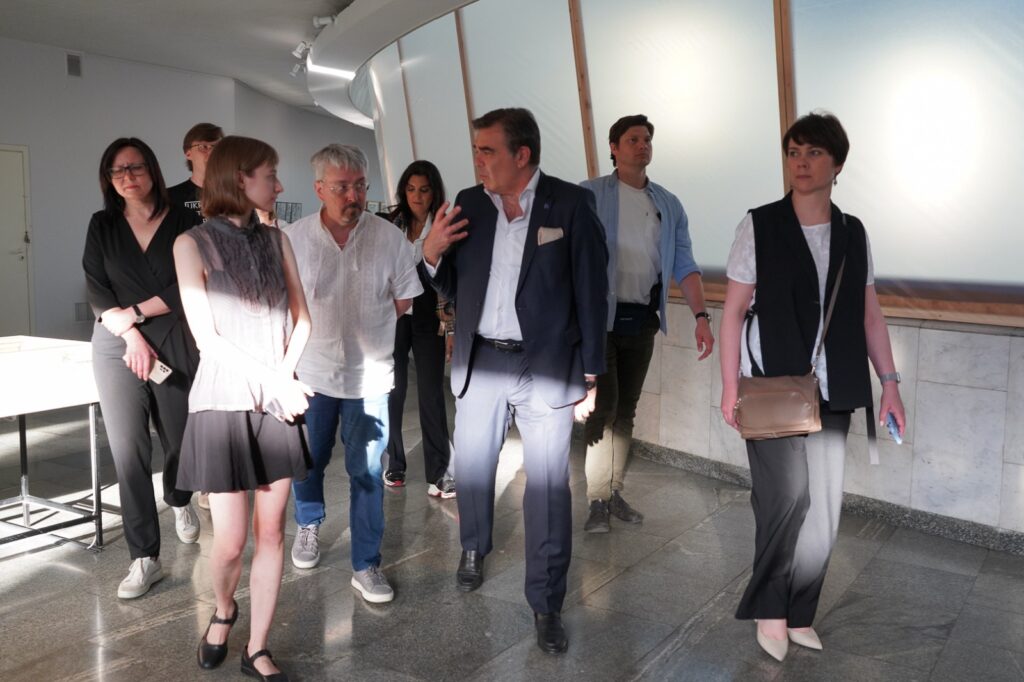
“The destruction of the Kakhovka HPP by russian troops has not only caused a large-scale ecocide and losses for our population, but also continues to destroy our identity,” said Oleksandr Tkachenko. “In the at-risk zone, which includes Kherson and Mykolaiv regions, 147 cultural and art education institutions have been affected, including valuable historical, architectural and urban planning objects, such as the Polina Raiko House-museum and Oleshky Sich, as well as the Korsun Monastery, which are partially or completely submerged.”
The Ukraine’s Minister emphasized the priority tasks in the field of cultural heritage, which include the creation of digital registers for both movable and immovable heritage and the restoration of significant cultural objects.
“Some of the tasks that are a priority for Ukraine include the creation of digital registers for movable and immovable heritage to ensure their documentation, preservation, and prevention of illegal trafficking. Thanks to the assistance of international partners, this work is already underway. However, in order to maintain and fill registers with up-to-date information and to digitize museum collections, Ukrainian museums and libraries require powerful and modern technical equipment,” noted the Minister.
This concerns approximately 2,500 museums and around 15,000 libraries in Ukraine.
Therefore, Oleksandr Tkachenko initiated to launch a program to supply computers to Ukrainian cultural institutions.
During the visit, the Vice-President of the European Commission, along with the Ukraine’s Minister, also laid flowers at the Wall of Remembrance of those who died for Ukraine near St. Michael’s Cathedral in Kyiv.
